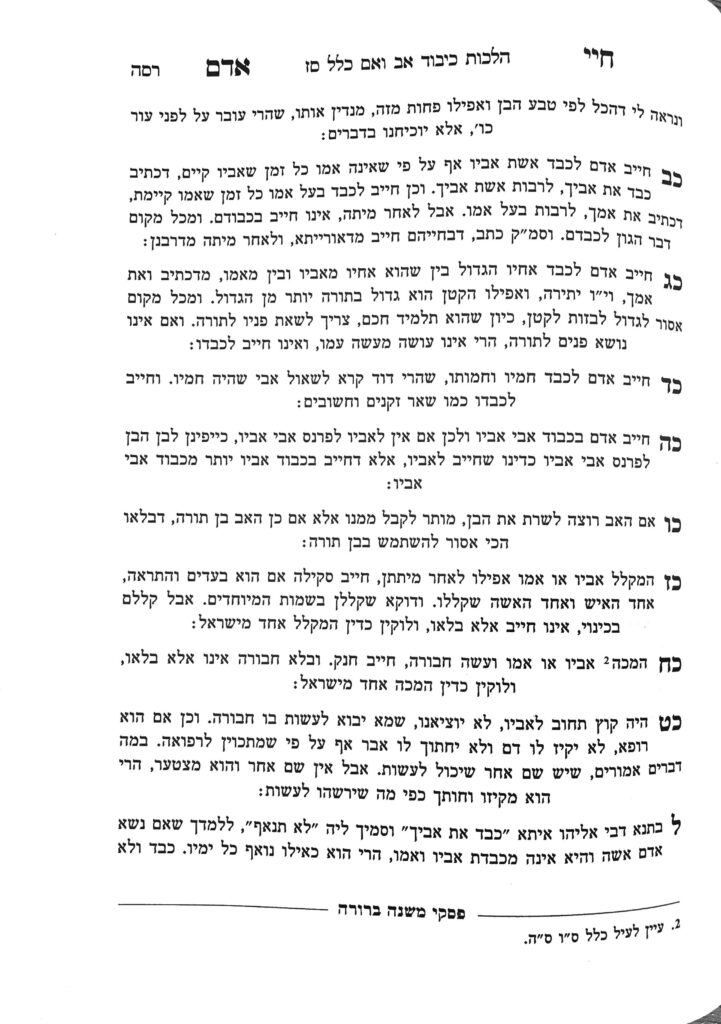We have finished siman 30, and have a few other points to discuss. The Chayei Adam quoted the Tanna D’vei Eliyahu regarding the proximity of the mitzvah of kibud av v’eim to lo sinaf and lo signov. We will learn other ideas written by the Tanna D’vei Eliyahu regarding kibud av v’eim.
In Perek 26 of Eliyahu Rabba, Eliyahu Hanavi discusses the proximity of kibud av v’eim to shabbos. He writes that as long as one is careful with kibud av v’eim, Hashem protects them from Chillul Shabbos and other aveiros. If a person wants to gain an appreciation of the Shabbos which they receive from Hashem, they can do so by living with an appreciation of what they have received from their parents, and extrapolate from their parents to Hashem.
Eliyahu Hanavi also points out that the Torah teaches lo sirtzach in proximity to kibud av v’eim. He explains that if a person has parnassah for himself, but does not use the money to support his parents, he is considered a rotzeiach. Although one is not chayav per se to feed a parent from their own resources, we learned (shiur 1339) that if a child has the financial means and a parent does not have the means, the child is responsible to take care of the parents. In the world of agadata, the Tanna D’vei Eliyahu takes this responsibility much farther.
In other versions of Tanna D’vei Eliyahu, he points out other connections between kibud av v’eim and other aseres hadibros. He writes that kibud av v’eim is written in proximity to kidnapping, not testifying falsely and to lo sachmod (wanting someone else’s money).
It is appropriate for an adult child, who has the means, to share his money with his parents. By denying the care of his parents, he wants the money for himself, which is akin to lo saaneh b’reiacha eid sheker. He is denying the reality of how Hashem set up the world, hence it is akin to eidus skeker.
Additionally, he is kidnapping, because he is withholding from others what they actually need. He is taking away their nefesh, the life source.
Finally, he is transgressing lo sinaf, because he is taking his strengths and abilities and investing them into something where they do not belong. He is keeping resources for himself as opposed to sharing it with his parents, where it should be used. This is like the man who uses his physical self for a woman where it doesn’t belong.
In discussing kibud av v’eim, Rav Hirsch writes that kibud av v’eim is the vehicle through which we learn to respect Hashem is our mesorah. However, this mesorah is only possible when we have tremendous respect for the previous generation. One generally learns significantly less when they do not respect the individual. Thus, kibud av v’eim is the vehicle through which one learns to respect and serve Hashem.



